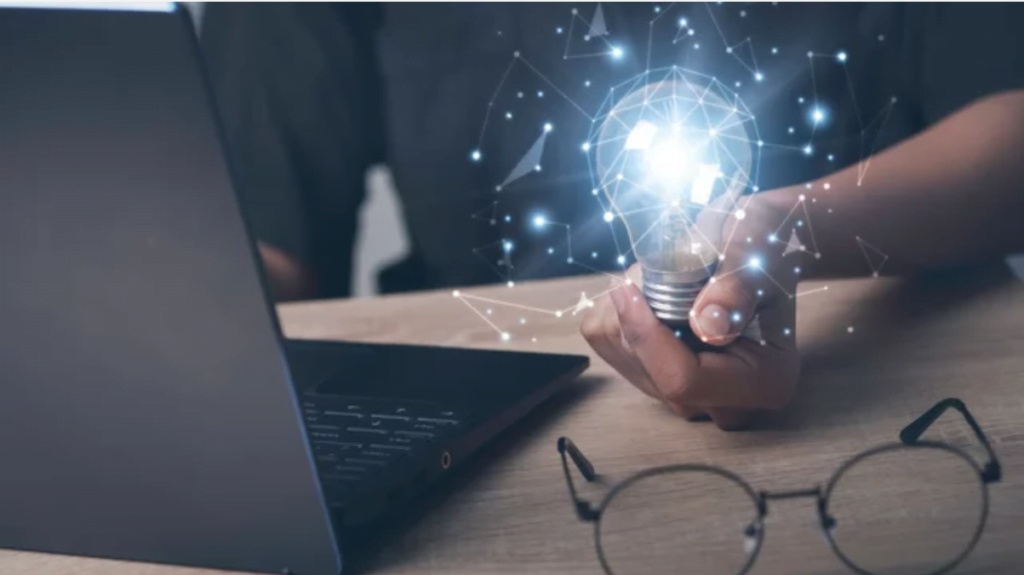
Learn always newThe Science of Progress Learning
Introduction
Progress learning is a structured and ongoing approach to skill and knowledge acquisition. It entails systematically setting and achieving learning goals, tracking advancement, and making necessary adjustments along the way. This process is significant for individuals as it facilitates continuous skill enhancement, potentially leading to improved career prospects, increased income, and a more satisfying life. Furthermore, organizations benefit from progress learning by cultivating a more proficient and productive workforce.
The science of progress learning
There is a growing body of research on the science of progress learning. This research has identified a number of factors that contribute to effective progress learning, including:
Goal setting:

Goal setting is a fundamental process that involves identifying clear and specific objectives, making them measurable, achievable, relevant, and time-bound (SMART), and breaking them down into smaller steps. Setting and achieving goals has numerous benefits, including providing clarity, motivation, and a basis for measurement and evaluation. The goal-setting process typically includes identifying objectives, making goals SMART, breaking them into smaller steps, creating action plans, setting deadlines, monitoring progress, staying flexible, seeking support and accountability, celebrating achievements, and learning from setbacks. In essence, goal setting is a powerful tool for personal and professional growth, offering direction, motivation, and a framework for success.
Progress tracking:
Progress tracking is the ongoing process of assessing and evaluating the advancement of specific goals, projects, tasks, or objectives. It involves establishing a baseline, measuring and evaluating key indicators, and regularly monitoring progress. Progress tracking is crucial in various areas, such as personal development, project management, education, and business. It encompasses setting KPIs, providing regular updates, incorporating feedback, using visual aids, ensuring accountability, adapting strategies, staying motivated, promoting communication, and establishing feedback loops. It ensures that efforts remain aligned with long-term objectives and serves as a valuable tool for achieving success and continuous improvement across different domains.
Feedback:
Feedback on progress learning is overwhelmingly positive and celebrated by learners, educators, and organizations. It leads to increased motivation, fostering enthusiasm due to the personalized approach and the opportunity to explore areas of interest. Progress learning is lauded for promoting critical thinking, problem-solving, and a deeper understanding of subjects, while also contributing to holistic development that goes beyond academics. Learners appreciate its real-world relevance, which helps them see how their education applies to their lives and future careers. The individualized approach is widely praised for accommodating diverse learning styles and paces, meeting the unique needs of each learner.
Feedback underscores the development of practical skills such as time management, communication, collaboration, and adaptability, all highly valued in the job market. Progress learning’s adaptability in a fast-changing world is widely acknowledged. Satisfaction levels are high among learners and educators alike, as it ignites a stronger interest in learning, improves knowledge retention, and fosters personal growth. It is seen as a means to prepare individuals for the complexities of the modern world and instill a mindset of lifelong learning and adaptability. The approach leads to enhanced self-confidence and self-efficacy.
Improved communication skills stem from the collaborative nature of progress learning, supporting effective teamwork. The integration of technology is seen as a highly engaging and accessible aspect, especially for digital natives. Furthermore, progress learning is recognized for its inclusivity and adaptability, accommodating diverse learning needs and backgrounds. Nonetheless, it’s acknowledged that the implementation of progress learning can vary, with potential challenges related to resource allocation, resistance to change, and standardization concerns. Ongoing discussions focus on striking a balance between structure and individualization in education. Despite these challenges, progress learning remains a promising approach for improving the learning experience, nurturing personal growth, and promoting lifelong learning..
Motivation:
Motivation serves as a powerful catalyst for the adoption of progress learning, driven by several compelling factors. Progress learning capitalizes on intrinsic motivation, nurturing learners’ natural curiosity and desire to learn for its own sake. It empowers individuals with a sense of ownership and autonomy over their education, enabling active engagement. The emphasis on real-world relevance makes the educational journey meaningful and directly applicable to learners’ lives and careers. By personalizing the learning experience to accommodate diverse styles and paces, progress learning ensures that individual needs are met, fueling motivation.
It aligns with the human drive for growth and improvement, providing a structured framework for setting and achieving personal and professional goals and fostering continuous progress. The act of defining and tracking specific, achievable objectives instills purpose and direction, further motivating learners. Progress learning’s active, problem-solving approach engages individuals in ways that passive instruction cannot, sustaining motivation throughout the journey. Its adaptability ensures that learners can tailor their education to changing needs and interests, making it a relevant and motivating choice in an ever-changing world. Positive feedback and increased self-confidence from making progress create a cycle of motivation, reinforcing the belief in one’s ability to tackle more challenging goals.
Strategies for effective progress learning
To simplify the process of breaking down learning goals into manageable steps, follow these guidelines: Define your specific learning goal. For instance, specify “learning to make a basic pasta dish” instead of a vague “learning to cook.” Identify the major steps needed to achieve your goal, such as boiling water, cooking pasta, and making a sauce for pasta. Divide each major step into smaller tasks, like measuring water, bringing it to a boil, adding pasta, and cooking it for the required time. Estimate the time required for each task to create a realistic timeline. Prioritize tasks, focusing on the most important ones first.
Schedule your tasks in your calendar to maintain focus and prevent procrastination. For example, if your goal is to “Learn to speak basic Spanish,” the major steps include learning the alphabet, pronunciation, grammar, common vocabulary, and speaking with native speakers. Tasks within these steps involve practicing pronunciation, studying grammar, learning vocabulary, and finding opportunities to speak with others. Breaking your learning goals into smaller steps makes the process more manageable and allows for progress tracking and celebration along the way.
Use a variety of learning methods. This will help you to stay engaged and learn more effectively:

To promote engagement and enhance learning effectiveness, progress learning is an educational approach focused on continuous advancement and personal growth. It utilizes a diverse array of learning methods and strategies, including hands-on experiences, active problem-solving, collaboration, and self-directed exploration. Progress learning aims to enrich the learning experience, foster critical thinking, and adapt to individual learning styles and preferences, all contributing to ongoing improvement and skill development.
Conclusion
Progress learning is a methodical and quantifiable way to gain new skills and knowledge, serving the interests of both individuals and organizations. It holds the promise of boosting motivation, bolstering self-assurance, advancing career opportunities, increasing income, and contributing to a more rewarding existence. To enhance progress learning, individuals can implement tactics such as breaking down learning objectives, crafting a structured learning plan, diversifying learning methods, seeking external input, and acknowledging their learning milestones.
Here are some additional tips for effective progress learning: Discover your preferred learning style; for some, reading works best, while others thrive through hands-on experiences or active listening. Experiment with various learning approaches to identify what suits you best. Establish a learning-friendly environment, free from distractions, to enhance your concentration and absorption of knowledge.
Take necessary breaks during your learning journey to maintain focus and prevent burnout. Scheduled pauses are essential for effective learning. Never hesitate to seek assistance when faced with challenges in your learning process. Reach out to teachers, mentors, peers, or friends for support.
Keep in mind that progress learning is a continuous journey, not a final destination. Learning requires time and effort, so remain patient and persistent even if immediate results are not evident. Just keep at it, and you will eventually achieve your learning goals.





Your method of explaining the whole thing in this post is genuinely pleasant, every one can effortlessly
know it, Thanks a lot.